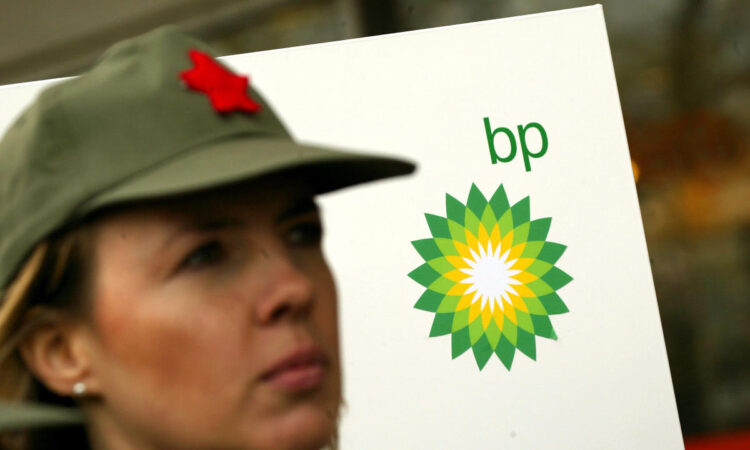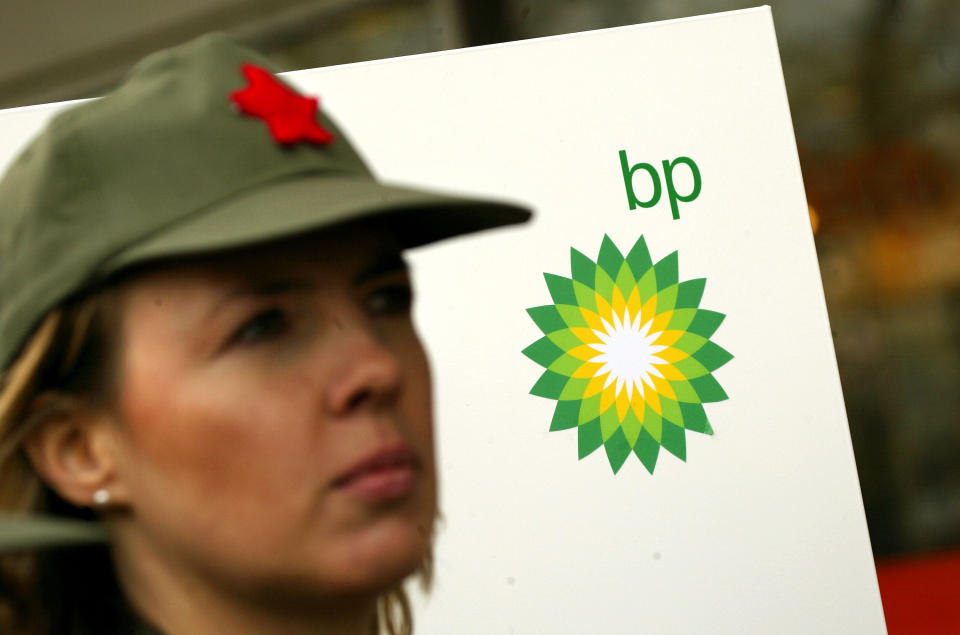

BP is expecting to report a strong performance from its trading business in the first quarter thanks to a market improvement from buying and selling oil.
The oil major said that production is expected to have been “higher” than the last three months of 2023 when it reports its results on 7 May.
Meanwhile, gas and low carbon energy production will be “slightly higher”, the business said.
But as oil and gas prices have dropped, the business nevertheless expects to take a financial hit.
Read more: FTSE 100 LIVE: European stocks fall as investors pare bets on rate cuts
BP warned shareholders to expect a $200m-$400m (£158m-£316m) hit to its underlying replacement cost profit before interest and tax because of the fall in the gas price and some other issues.
On top of that, the company’s oil production unit expects to take a $300m-$600m hit. This is partly due to production in the Gulf of Mexico and the United Arab Emirates being hit by price lags.
TSMC (TSM)
The world’s biggest chipmaker, Taiwan Semiconductor Manufacturing Co, has agreed to make its most advanced products in Arizona from 2028, after receiving a pledge of as much as $11.6bn in US government subsidy as part of Joe Biden’s efforts to attract computer chip production.
It already has two factories under construction in Arizona but will build a third under the latest deal with the US government. The Taiwanese company will receive up to $6.6bn (£5.2bn) in direct funding from the US government and could get up to another $5bn in the form of loans.
The deal is part of an effort to boost semiconductor production in the US. The US is currently highly dependent on Asia, especially Taiwan, for chips.
Read more: Stocks that are trending today
“America invented these chips, but over time, we went from producing nearly 40% of the world’s capacity to close to 10%, and none of the most advanced chips,” Biden said in a statement. “[That exposes] us to significant economic and national security vulnerabilities.”
The Commerce Department said the deal would create at least 6,000 direct high-tech jobs, 20,000 in the construction of factories, and tens of thousands of indirect jobs.
The lender has agreed to sell HSBC Argentina to Grupo Financiero Galicia, the country’s largest private financial group, for $550m, HSBC said Tuesday. It will take a $1bn hit from the divestment in the first quarter.
The deal includes banking, asset management and insurance, as well as $100m of subordinated debt. HSBC said the move will allow it to focus on higher-value opportunities.
Read more: UK homeowners renting out rooms amid high mortgage rates
“HSBC Argentina is largely a domestically focused business, with limited connectivity to the rest of our international network,” said HSBC chief executive Noel Quinn.
He added that the Argentina business generated substantial earnings volatility for the group when its results were translated into US dollars.
Auddia (AUUD)
Auddia stock surged by almost 150% after the media company said it had received a US patent for the core AI technology it uses in its flagship faidr app to deliver ad-free AM/FM radio stations to paid subscribers.
In addition to issuance of Patent 11,935,520, the company has taken the next step in advancing the provisional patent application it filed last year related to leveraging AI to improve large language model (LLM) prompts and the domain specific knowledge of proprietary GPTs, according to a statement by the Nasdaq-listed (^IXIC) tech group.
“Issuance of this patent validates our innovation and secures our AI for Audio technology as a proprietary platform we look forward to building upon to drive new innovations in support of additional industry first premium audio listening experiences,” Jeff Thramann executive chairman, said.
Watch: Why this portfolio manager likes Chinese stocks
Download the Yahoo Finance app, available for Apple and Android.






